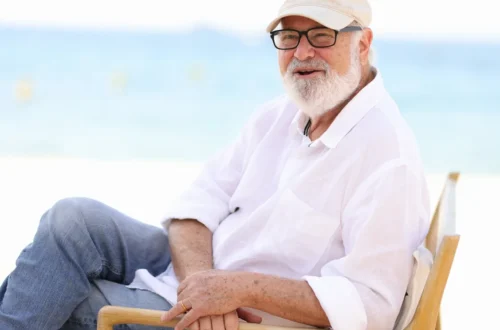University of Colorado head football coach Deion Sanders revealed this week that he had been diagnosed earlier this year with a high-risk, non-muscle invasive bladder cancer. The diagnosis came following a routine CT scan conducted as part of follow-up care related to previous vascular issues. Sanders said the tumor was aggressive and had begun to invade the bladder wall, but had not yet reached the muscle layer, which gave doctors a better chance of eradicating the disease.
Dr. Janet Kukreja, Director of Urologic Oncology at the CU Cancer Center, performed the surgery using a robotic-assisted laparoscopic technique. The procedure involved removing Sanders’s entire bladder and constructing a neobladder using a portion of his small intestine. The operation was a success, and according to his medical team, Sanders is now considered cured, though they cautioned that the term “cured” is always used carefully in oncology. Ongoing surveillance, including periodic scans, will be part of his post-operative care.
At a recent press conference, Sanders became emotional while recounting the moment he learned of his diagnosis. He said he immediately began preparing his will, realizing the gravity of his situation. Despite the seriousness of the disease and the intensity of the surgery, he kept his spirits up, often balancing the conversation with humor. He spoke candidly about dealing with the physical aftermath of surgery, including challenges with bladder control, joking that he now relies on adult diapers and might need a port-a-potty on the sidelines during games.
Sanders used the occasion to urge others, especially men and African American men, to take their health seriously and schedule regular screenings. “If it can happen to Prime, it can happen to you,” he said, emphasizing the importance of early detection. He also expressed deep gratitude to his medical team and family for their support during his treatment and recovery.
Bladder cancer is expected to affect more than 85,000 Americans in 2025, with men accounting for the majority of cases. The five-year survival rate for non-muscle invasive bladder cancer can range from 72% to 97%, depending on how early it is caught. Sanders’ case, caught before the cancer reached the muscle layer, was treated in time to avoid a more dangerous prognosis.
Though Sanders missed spring and summer training while recovering, he made it clear that he never doubted his return to coaching the Buffaloes. He has reportedly lost 25 pounds during treatment but remains focused on the upcoming football season. He recently met privately with the team and is preparing to resume full coaching duties.
The video documentary “For Your Glory,” created by Sanders’ son Deion Jr., chronicles much of this personal health battle. The video includes footage of actress Karrueche Tran offering support at the hospital, prompting speculation about a potential romantic relationship. Neither Sanders nor Tran has commented on the nature of their connection.
Coach Prime’s experience with bladder cancer has become more than a personal health scare—it’s a message to others about vigilance, early intervention, and resilience. His openness and humor amid adversity have added yet another layer to the public persona of a man who has always lived life in the spotlight.




